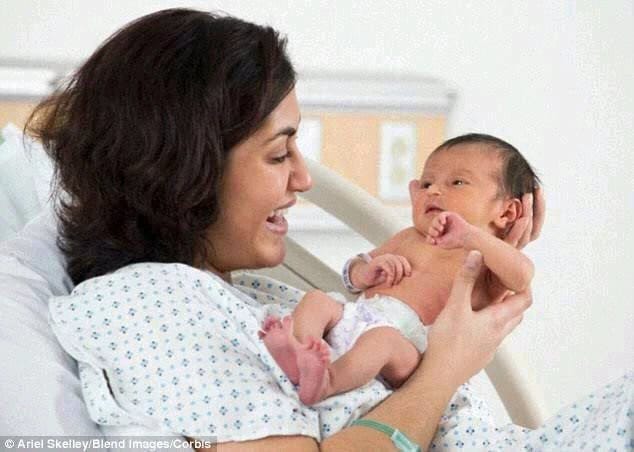You will discover the best age for women to give birth to babies, considering factors like fertility, pregnancy risks, and personal circumstances.

Determining the ideal time to begin a family is a highly personal decision, influenced by numerous factors such as career goals, financial stability, and individual preferences. When it comes to the most advantageous age for women to conceive and give birth to babies, several crucial considerations come into play.
Biological Factors And The Twenties
Biologically, women experience peak fertility in their twenties. During this period, particularly in their early twenties, women typically possess a larger number of healthy eggs, increasing the likelihood of conception and successful pregnancy. Furthermore, the risk of pregnancy-related complications like gestational diabetes and high blood pressure tends to be relatively lower during this age range. The higher energy levels often enjoyed by women in their twenties can also prove beneficial when it comes to the demands of parenting.
Delaying Childbirth: Thirties And Forties
In recent years, it has become increasingly common for women to delay childbirth until their thirties or even forties. Many women choose to focus on their education, careers, or personal development before starting a family. Technological advancements in reproductive treatments, such as fertility procedures and egg freezing, have expanded the options available to women who wish to postpone childbearing.
However, it is important to recognize that a woman’s fertility naturally declines as she ages. The quantity and quality of eggs diminish, making conception more challenging. Moreover, the risk of pregnancy complications, including chromosomal abnormalities and miscarriages, escalates with advancing age. Women in their thirties and beyond also face a higher likelihood of requiring medical interventions during pregnancy and childbirth.
Determining The Best Age
Ultimately, determining the best age for a woman to give birth to babies depends on multiple factors, including individual circumstances and priorities. Engaging in open discussions with partners and healthcare providers is crucial for making informed decisions about reproductive choices.
Regardless of age, preconception care plays a pivotal role in ensuring a healthy pregnancy and baby. Embracing a balanced diet, regular exercise, stress management, and avoiding harmful substances like tobacco and alcohol are all vital steps when planning for pregnancy.
Choosing the optimal age to start a family and embark on the journey of childbirth is a personal decision, influenced by a range of factors. While women experience peak fertility in their twenties, advancements in reproductive technology have allowed for delayed childbearing. It is essential for women to understand the natural decline in fertility as they age and the increased risks associated with pregnancy in their thirties and forties. Open communication with partners and healthcare providers is key to making well-informed decisions. Regardless of age, prioritizing preconception care promotes a healthy pregnancy and the birth of a thriving baby.

The Impact Of Age On Fertility
One of the primary factors influencing the decision of when to start a family is a woman’s fertility. As mentioned earlier, women in their twenties generally have a higher number of healthy eggs, which increases the chances of conceiving. This is because a woman is born with a finite number of eggs, and as she ages, the quantity and quality of those eggs decline. By the time a woman reaches her thirties, her fertility begins to gradually decrease, and the decline becomes more significant after the age of 35.
The decrease in fertility with age is attributed to various factors. One major factor is the decreased ovarian reserve, which refers to the number of eggs a woman has remaining in her ovaries. As women age, the ovarian reserve naturally diminishes, making it more challenging to conceive. Additionally, there is an increased likelihood of chromosomal abnormalities in the eggs of older women, which can lead to a higher risk of miscarriage and genetic disorders in the offspring.
The Role Of Reproductive Technology
In recent years, advancements in reproductive technology have provided women with more options when it comes to family planning. Fertility treatments such as in vitro fertilization (IVF) and intrauterine insemination (IUI) have helped many couples overcome infertility issues and achieve successful pregnancies. These treatments involve the stimulation of the ovaries to produce multiple eggs, which are then fertilized outside the body and transferred back into the uterus.
For women who wish to delay childbearing, another option is egg freezing. This process involves the extraction and freezing of a woman’s eggs when she is younger and has a higher ovarian reserve. The frozen eggs can then be thawed and used in the future when the woman is ready to conceive. Egg freezing has become increasingly popular as it allows women to preserve their fertility potential and have greater control over the timing of their pregnancies.
Considering Individual Circumstances
While age is an important factor to consider when planning for pregnancy, it is crucial to take into account individual circumstances and priorities. Some women may prioritize establishing their careers or achieving certain educational goals before starting a family. Others may have specific personal or financial considerations that influence their decision. It is essential to respect and support each woman’s unique journey and choices.
The Importance Of Preconception Care
Regardless of age, preconception care is vital for ensuring a healthy pregnancy and the well-being of the baby. Preconception care involves taking proactive steps to optimize one’s health and prepare the body for pregnancy. This includes maintaining a nutritious diet rich in essential vitamins and minerals, engaging in regular exercise, managing stress levels, and avoiding harmful substances such as tobacco and alcohol. Women should also consult with their healthcare providers to address any existing medical conditions or concerns before attempting to conceive.
Deciding on the best age to give birth to babies is a complex decision influenced by a range of factors. While women in their twenties generally experience peak fertility and lower pregnancy risks, advancements in reproductive technology have expanded the options for delayed childbearing.
Understanding the natural decline in fertility with age and the potential risks associated with pregnancy in the thirties and forties is crucial for making informed choices.
Each woman’s journey is unique, and it is important to consider individual circumstances and priorities when planning for a family. Open and honest communication with partners and healthcare providers is essential in making well-informed decisions about reproductive choices. By prioritizing preconception care and adopting a healthy lifestyle, women can optimize their chances of a successful and healthy pregnancy, regardless of age.





